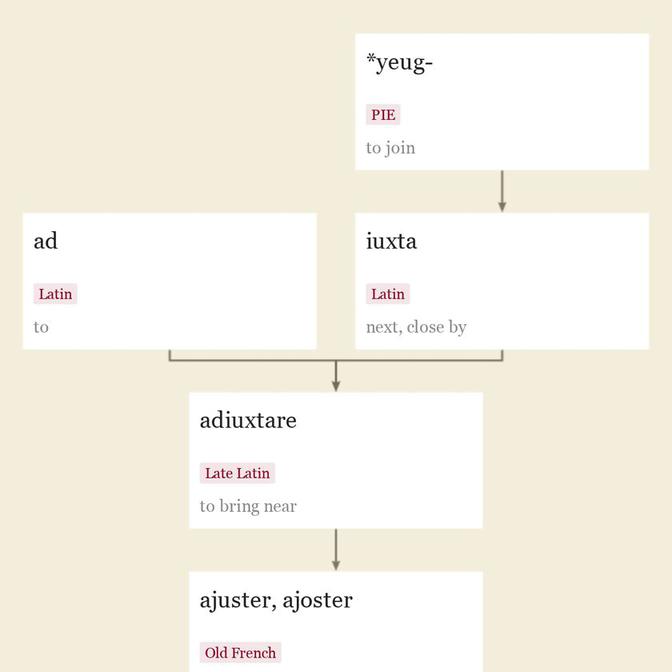adjustable adj.
"
Entries linking to adjustable

late 14c., ajusten, "
In 16c. French corrected to adjuster, but the pedantic effort was rejected and Modern French has ajouter. Influenced in form and sense by folk-etymology, as if from ad- + iustus "
English reborrowed the word by c. 1600 in sense "
common termination and word-forming element of English adjectives (typically based on verbs) and generally adding a notion of "
A living element in English, used in new formations from either Latin or native words (readable, bearable) and also with nouns (objectionable, peaceable). Sometimes with an active signification (suitable, capable), sometimes of neutral signification (durable, conformable). It has become very elastic in meaning, as in a reliable witness, a playable foul ball, perishable goods. A 17c. writer has cadaverable "
To take a single example in detail, no-one but a competent philologist can tell whether reasonable comes from the verb or the noun reason, nor whether its original sense was that can be reasoned out, or that can reason, or that can be reasoned with, or that has reason, or that listens to reason, or that is consistent with reason; the ordinary man knows only that it can now mean any of these, & justifiably bases on these & similar facts a generous view of the termination's capabilities; credible meaning for him worthy of credence, why should not reliable & dependable mean worthy of reliance & dependence? [Fowler]
In Latin, -abilis and -ibilis depended on the inflectional vowel of the verb. Hence the variant form -ible in Old French, Spanish, English. In English, -able tends to be used with native (and other non-Latin) words, -ible with words of obvious Latin origin (but there are exceptions). The Latin suffix is not etymologically connected with able, but it long has been popularly associated with it, and this probably has contributed to its vigor as a living suffix.
updated on March 18, 2020